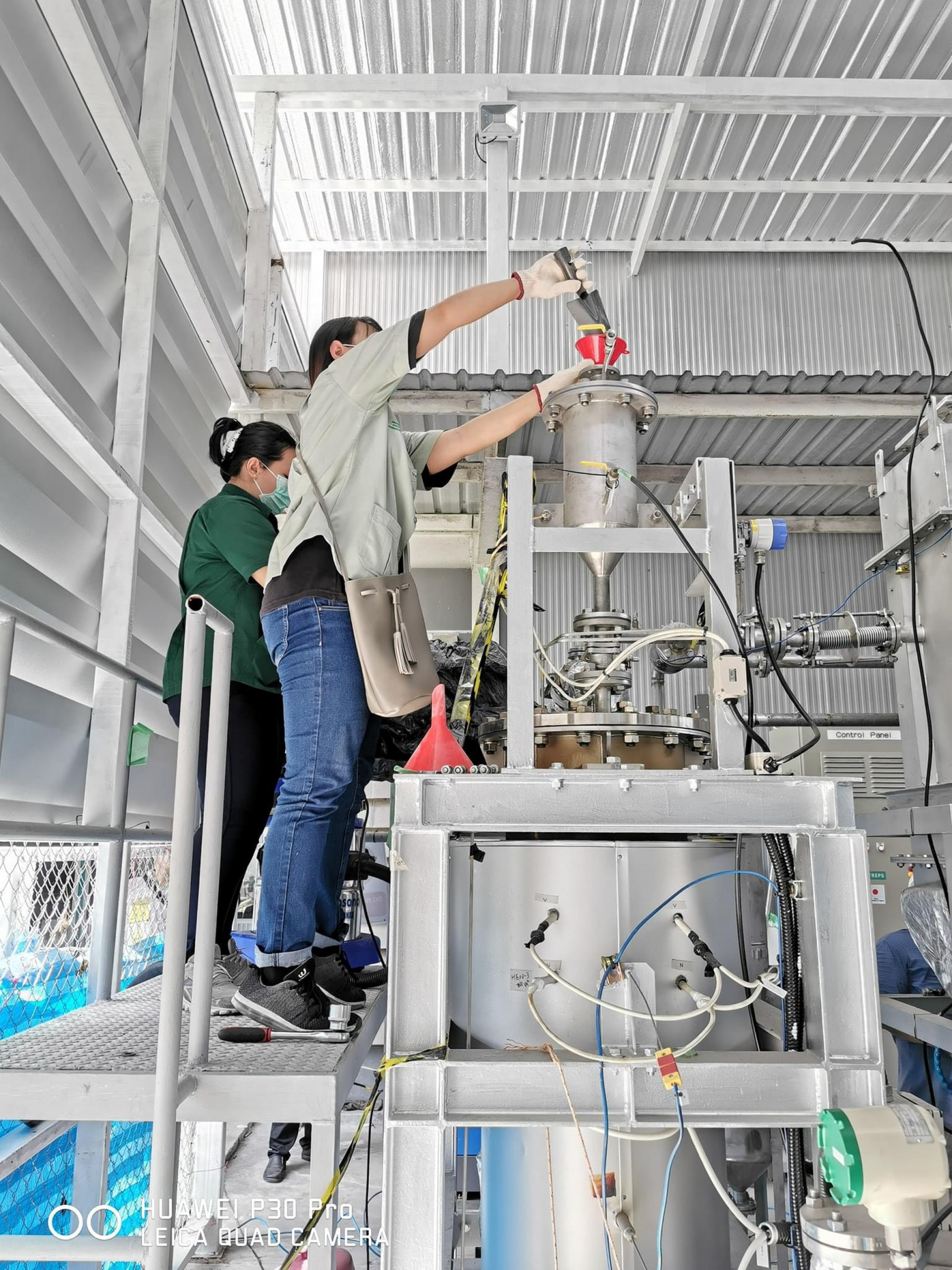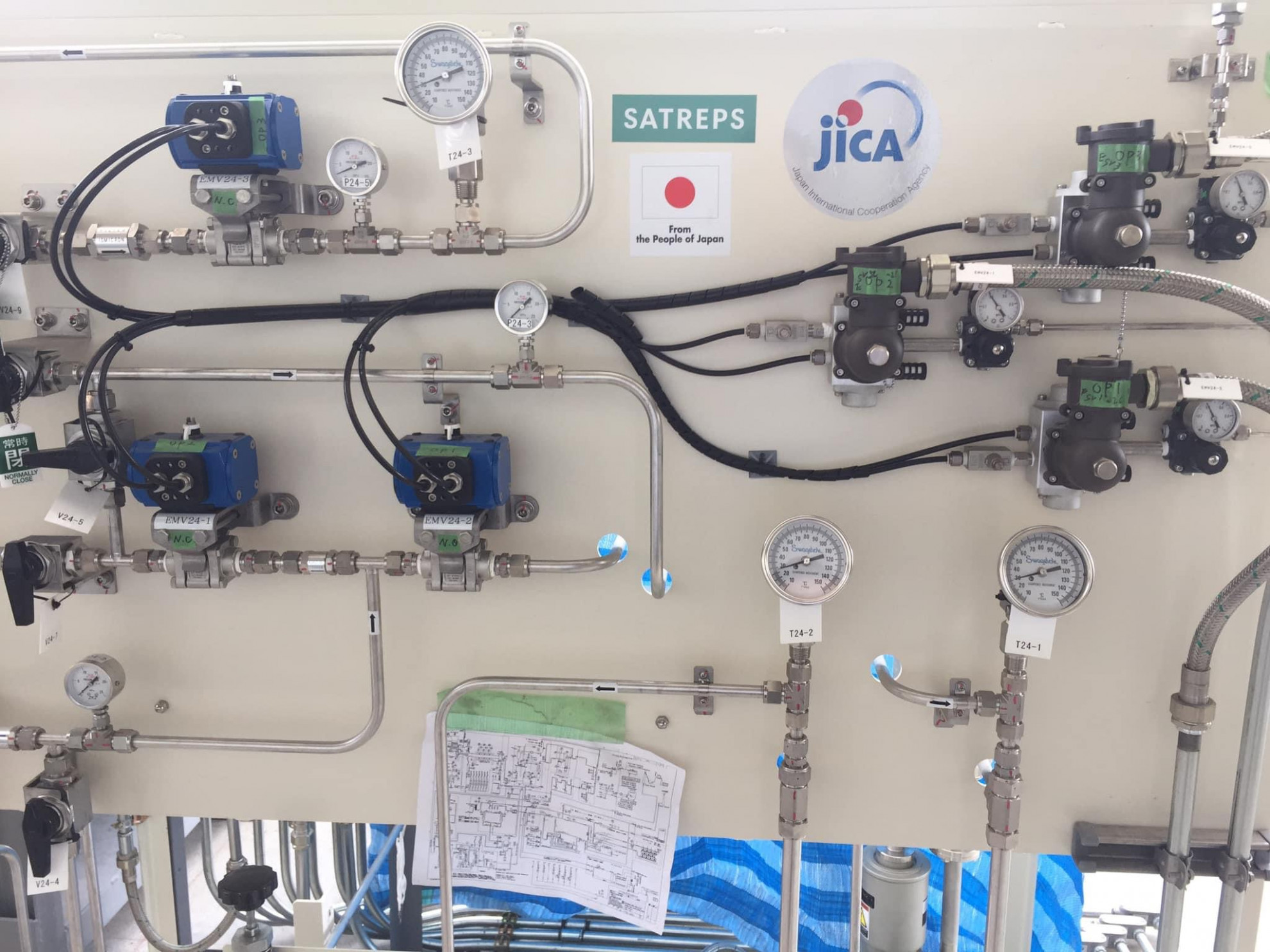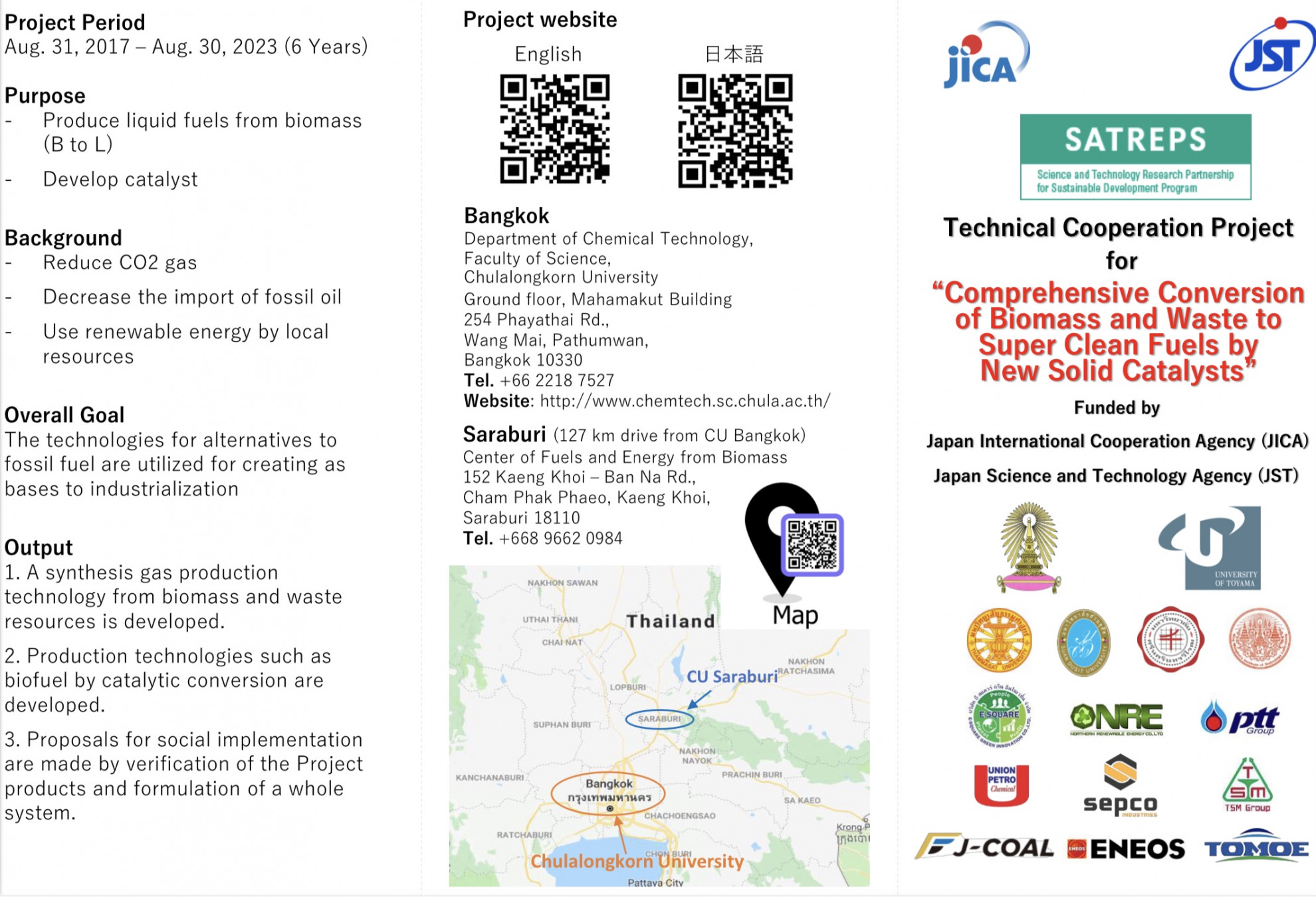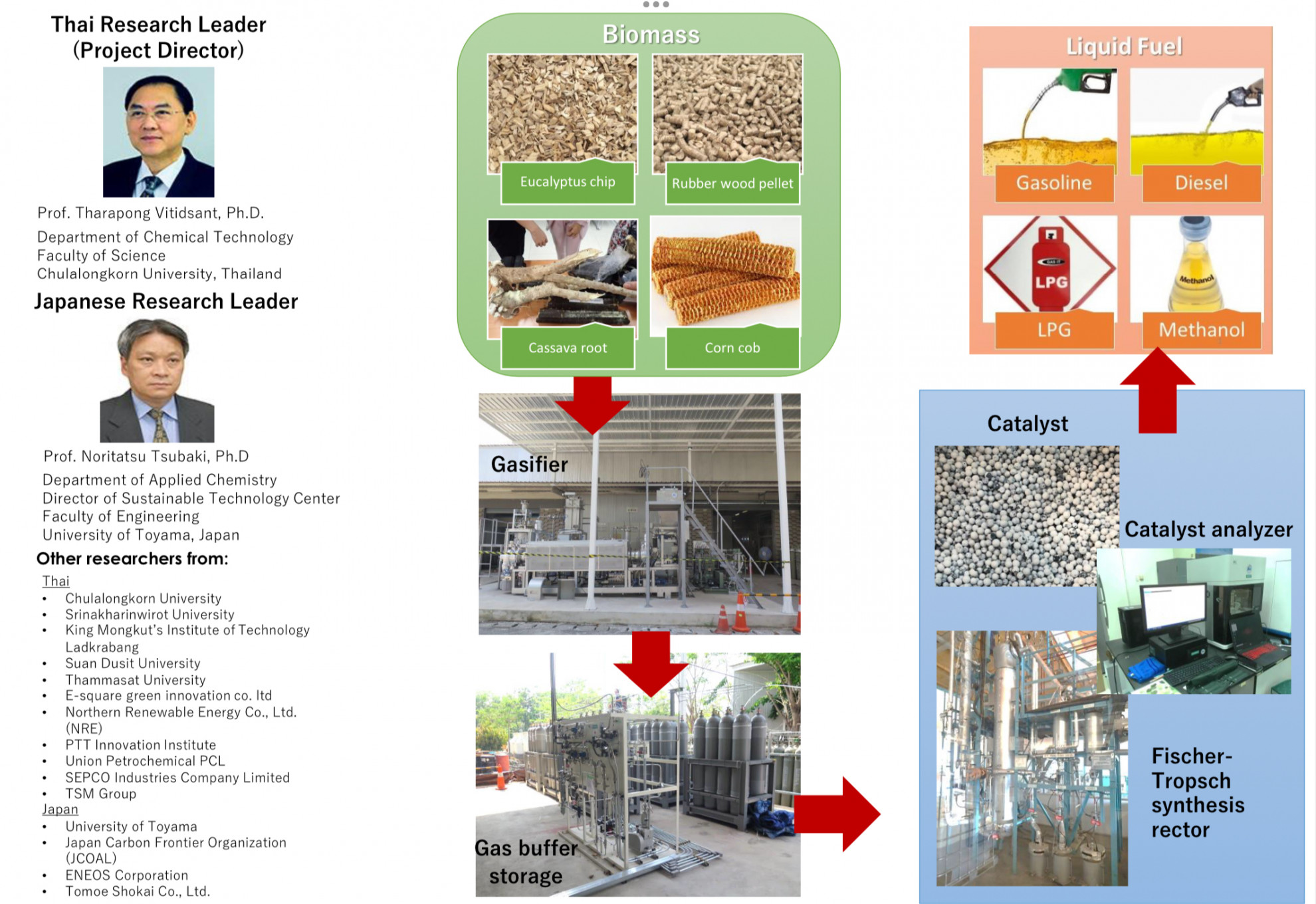





| Target | Indicator | Result |
|---|---|---|

SDG 7
AFFORDABLE AND CLEAN ENERGY
|
||
| 7.1 By 2030, ensure universal access to affordable, reliable and modern energy services | 7.1.2 Proportion of population with primary reliance on clean fuels and technology | provide the technological knowledge transfers to the industrial sector to promote clean energy use in the near future. |
| 7.2 By 2030, increase substantially the share of renewable energy in the global energy mix | 7.2.1 Renewable energy share in the total final energy consumption | provide the technological knowledge transfers to the industrial sector to promote clean energy use in the near future. |
| 7.3 By 2030, double the global rate of improvement in energy efficiency | 7.3.1 Energy intensity measured in terms of primary energy and GDP | provide the technological knowledge transfers to the industrial sector to promote clean energy use in the near future. |
| 7.a By 2030, enhance international cooperation to facilitate access to clean energy research and technology, including renewable energy, energy efficiency and advanced and cleaner fossil-fuel technology, and promote investment in energy infrastructure and clean energy technology | 7.a.1 International financial flows to developing countries in support of clean energy research and development and renewable energy production, including in hybrid systems | provide the technological knowledge transfers to the industrial sector to promote clean energy use in the near future. |
| 7.b By 2030, expand infrastructure and upgrade technology for supplying modern and sustainable energy services for all in developing countries, in particular least developed countries, small island developing States and landlocked developing countries, in accordance with their respective programmes of support | 7.b.1 Investments in energy efficiency as a proportion of GDP and the amount of foreign direct investment in financial transfer for infrastructure and technology to sustainable development services | provide the technological knowledge transfers to the industrial sector to promote clean energy use in the near future. |

SDG 13
CLIMATE ACTION
|
||
| 13.1 Strengthen resilience and adaptive capacity to climate-related hazards and natural disasters in all countries | 13.1.3 Proportion of local governments that adopt and implement local disaster risk reduction strategies in line with national disaster risk reduction strategies |
The biofuels product can be used as replacement fossil fuels that obtained zero carbon dioxide emission provide the technological knowledge transfers to the industrial sector to promote clean energy use in the near future that can be used as replacement fossil fuels that obtained zero carbon dioxide emission. |
| 13.3 Improve education, awareness-raising and human and institutional capacity on climate change mitigation, adaptation, impact reduction and early warning | 13.3.1 Number of countries that have integrated mitigation, adaptation, impact reduction and early warning into primary, secondary and tertiary curricula |
The biofuels product can be used as replacement fossil fuels that obtained zero carbon dioxide emission provide the technological knowledge transfers to the industrial sector to promote clean energy use in the near future that can be used as replacement fossil fuels that obtained zero carbon dioxide emission. |
| 13.a Implement the commitment undertaken by developed-country parties to the United Nations Framework Convention on Climate Change to a goal of mobilizing jointly $100 billion annually by 2020 from all sources to address the needs of developing countries in the context of meaningful mitigation actions and transparency on implementation and fully operationalize the Green Climate Fund through its capitalization as soon as possible | 13.a.1 Mobilized amount of United States dollars per year between 2020 and 2025 accountable towards the $100 billion commitment |
The biofuels product can be used as replacement fossil fuels that obtained zero carbon dioxide emission provide the technological knowledge transfers to the industrial sector to promote clean energy use in the near future that can be used as replacement fossil fuels that obtained zero carbon dioxide emission. |

SDG 17
PARTNERSHIPS FOR THE GOALS
|
||
| 17.5 Adopt and implement investment promotion regimes for least developed countries | 17.5.1 Number of countries that adopt and implement investment promotion regimes for least developed countries | Thailand Japan and other countries in non-OECD which will support by JICA Japan |
| 17.6 Enhance North-South, South-South and triangular regional and international cooperation on and access to science, technology and innovation and enhance knowledge-sharing on mutually agreed terms, including through improved coordination among existing mechanisms, in particular at the United Nations level, and through a global technology facilitation mechanism | 17.6.1 Number of science and/or technology cooperation agreements and programmes between countries, by type of cooperation | Technologies transfer under co-creating knowledge transfer (Japan Science Technology: JST) support by JICA, Japan |
| 17.14 Enhance policy coherence for sustainable development | 17.14.1 Number of countries with mechanisms in place to enhance policy coherence of sustainable development | Technologies transfer under co-creating knowledge transfer (Japan Science Technology: JST) support by JICA, Japan |
| Data, monitoring and accountability 17.18 By 2020, enhance capacity-building support to developing countries, including for least developed countries and small island developing States, to increase significantly the availability of high-quality, timely and reliable data disaggregated by income, gender, age, race, ethnicity, migratory status, disability, geographic location and other characteristics relevant in national contexts |
17.18.1 Proportion of sustainable development indicators produced at the national level with full disaggregation when relevant to the target, in accordance with the Fundamental Principles of Official Statistics | Thailand Japan and other countries in non-OECD which will support by JICA Japan |
In Thailand, a tropical agricultural country, large amounts of agricultural residues including those from processing of agricultural products are being wasted. The project aims to create renewable energy resources as an alternative to fossil fuels by developing gasification technologies to obtain gas from such agricultural residues and catalyst technologies to convert the gas to liquid fuel. We will not only develop technologies for characterization of resources, conversion to gas suitable for catalytic reaction, and catalytic conversion of gas to diesel, gasoline, LPG or methanol, but will also build a platform for the social implementation of these technologies through verification of product utilization characteristics as well as human resource development.
Contribute to solving resource and environmental issues by producing liquid fuel from renewable energy resources as an alternative to fossil fuels.
Alternative fuels to fossil fuels and chemical products from abundant biomass resources are produced in Thailand. The obtained biofuels will serve to improve Thailand’s energy self-sufficiency ratio, promote agriculture and rural communities, and conserve the environment of Thailand. In the future, it will also contribute to the development of fuel production from biomass that does not compete with the food supply and prevent global warming by the use of alternative fuels to fossil fuels.
The Overall Goal : The technologies for alternatives to fossil fuel are utilized for creating as bases to industrialization.
Project Purpose : Production technology of alternatives to fossil fuel using biomass and waste resources (quality of wood, farm outputs, waste systems, etc.) is developed, and the Project proposes for the social implementation.
Results : The Project started in August 2017. For the past two years, the Project's activities had been greatly affected by the COVID-19 pandemic and has faced many restrictions, which have caused progress to be delayed. Now that the project period has been extended by one year, until August 2023, there is a strong determination to accomplish the Project's outputs.
On July 7th, 2023 the project held the fifth Joint Coordination Committee (JCC) meeting at Chulalongkorn University with committee members including Japanese researchers, Thailand International Cooperation Agency (TICA), Japan Science Technology Agency etc., which consisted of key drivers of the project in attendance. The JCC is held in order to monitor the progress, to discuss problems, and to find solutions for the project. The meeting was chaired by Prof. Tharapong Vitidsant, Director of Centre of Fuels and Energyfrom Biomass, Chulalongkorn University and 26 members were attended.
Prof. Tsubaki, Toyama University, reported that all catalysts, which are catalytic technologies of bio-gasoline, biodiesel, bio-methanol and bio-LPG, have already been prepared for the project. As for the research on catalytic technologies bio-gasoline, capsule catalyst was developed, which is the first in the world to produce premium bio-gasoline from syngas by just one-step and low-cost.
Mr. Watanabe, Japan Coal Energy Center, shared the last gasification operation results. Gasified eucalyptus chips (620kg) resulted to produce total of 540m3 syngas and the syngas is currently stored in the buffer tank at a pressure of about 12 MPa. The H2/CO ratio is 1.6-2.0. Also, the troubles and its countermeasure/improvements taken during the test as well as safety measures were presented.
Dr. Witchakorn Charusiri, Srinakharinwirot University, presented the current status of Life Cycle Assessment (LCA) study for rubberwood pellet to successfully 4 target products e.g., bio-gasoline, bio-diesel , bio-methane and bio-methanol by gasification and FT catalytic chemical conversion.
1.A synthesis gas production technology from biomass and waste resources is developed.
2.Production technologies such as biofuel by catalytic conversion are developed.
3.Proposals for social implementation are made by verification of the Project products and formulation of a whole system.




